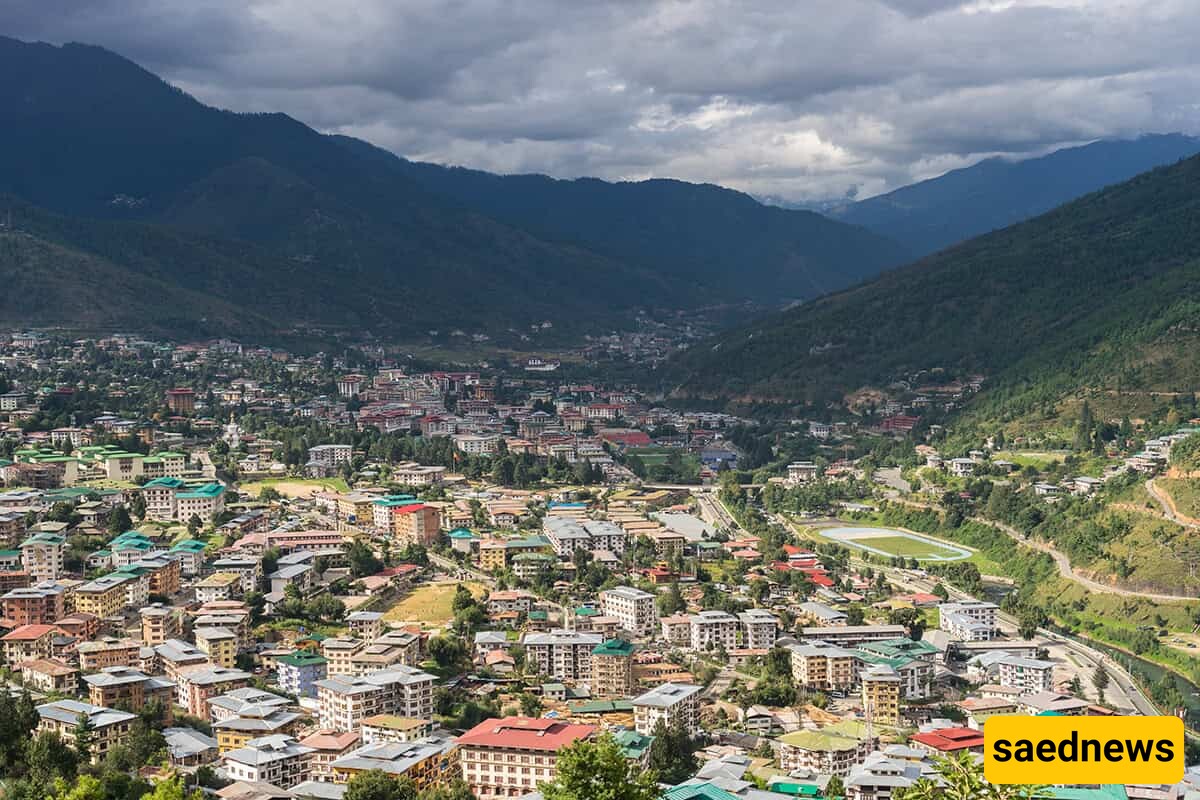SAEDNEWS: Bhutan, tucked away in the Himalayas, is frequently celebrated as the happiest country in the world. Its distinctive Gross National Happiness philosophy emphasizes well-being over material gain, providing meaningful insights into sustainable living and balanced development.

According to SAEDNEWS: While most countries measure success through GDP, Bhutan’s approach is refreshingly different. This small Himalayan kingdom focuses on Gross National Happiness (GNH), a holistic framework that emphasizes mental and physical well-being, cultural preservation, environmental sustainability, and good governance. Bhutan's philosophy has made it an icon of happiness worldwide, proving that progress isn't just about economic growth.

What Is GNH?
Introduced in the 1970s by Bhutan’s fourth king, Jigme Singye Wangchuck, GNH challenges conventional measures of success. It considers nine domains, including health, education, time use, psychological well-being, and community vitality, to evaluate national progress.
This framework ensures that policies align with the values of happiness and sustainability. For instance, Bhutan regulates tourism to preserve its natural and cultural heritage, prioritizing quality over quantity.
A Balanced Lifestyle
Unlike consumer-driven societies, Bhutan emphasizes a life of balance. Simple living, close community ties, and respect for nature are deeply ingrained in its culture, fostering a sense of contentment.

Bhutan is one of the few carbon-negative countries globally, absorbing more carbon than it emits. Over 70% of the country is covered by forests, and its Constitution mandates maintaining at least 60% forest cover for future generations.
The government also prioritizes renewable energy, primarily hydropower, reducing dependence on fossil fuels and ensuring a cleaner environment. This deep respect for nature not only sustains Bhutan’s biodiversity but also contributes to the mental and physical well-being of its citizens.
Bhutan’s cultural preservation is central to its happiness agenda. The government actively promotes traditional practices, such as wearing the national dress, speaking Dzongkha (the national language), and celebrating local festivals.
This emphasis on identity helps citizens maintain a deep connection to their roots while navigating modern challenges. The sense of cultural pride and unity it fosters is a cornerstone of national happiness.
Bhutan’s government plays a pivotal role in creating a happy society. Transparent policies, participatory governance, and a focus on citizen well-being strengthen public trust.
Programs aimed at reducing poverty, improving healthcare, and expanding education ensure equitable access to opportunities, reinforcing the idea that progress must benefit all.
Bhutan faces challenges from modernization, including urbanization and rising aspirations among its youth. The government, however, remains committed to protecting its values while integrating modern advancements. Despite its happiness reputation, Bhutan acknowledges the importance of addressing mental health issues. Initiatives to reduce stigma and provide accessible mental health services reflect its commitment to holistic well-being.
Bhutan’s philosophy demonstrates that happiness is achievable without excessive material wealth. By focusing on sustainability, cultural pride, and equity, it offers a model for countries seeking alternative pathways to progress.
Bhutan’s unique approach to happiness challenges global norms, proving that well-being stems from balance, not consumption. While its model may not be universally replicable, its core values of sustainability, community, and mindfulness offer inspiration for a world seeking greater harmony and contentment.

